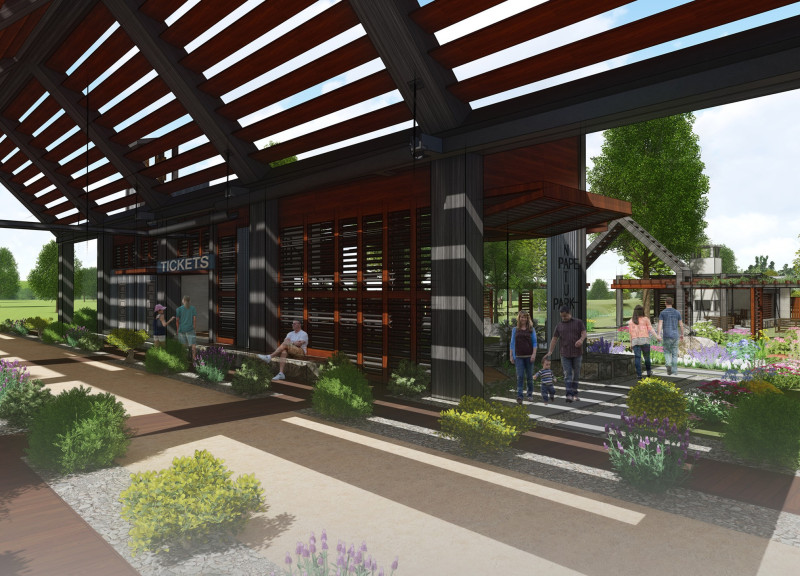5 key facts about this project
The visitor center and gateway at Pape Nature Park in Latvia blend traditional design and modern needs. Located within the park's natural landscape, the center functions as a space for both visitors and campers. The design draws from local building styles, reflecting the structures commonly found in Latvian houses and barns, while catering to contemporary requirements and user comfort.
SUSTAINABILITY CONSIDERATIONS
Sustainability is an important aspect of the center's design. It employs solar and wind energy to fulfill its power requirements. Rainwater harvesting systems have been installed to leverage the region's rainfall, providing water for drinking and sanitation. This approach reduces reliance on external resources and showcases a commitment to environmental responsibility while enhancing the center’s overall functionality.
LAYOUT AND AMENITIES
The layout of the visitor center is efficient and practical, providing a range of necessary amenities. Facilities include an information center, an outdoor kitchen, water closets, showers, and a playground for children. This thoughtful arrangement meets diverse visitor needs and encourages interaction with the center and its surroundings. Each space is designed to promote accessibility and enhance the overall experience.
MATERIALS AND CONSTRUCTION
The building uses wood and corrugated metal, primarily chosen for their local availability and renewability. These materials help connect the center to its regional context. The construction can be carried out either off-site or on-site, which reflects a traditional barn-raising technique. This method values local craftsmanship and fosters community involvement in the building process.
Operable louvered walls are another key feature of the design. Inspired by classic shutters, they provide flexibility in response to weather changes. The walls can be opened fully to allow fresh air during good weather or closed to protect against the elements. This practical detail enhances the connection between indoor and outdoor spaces, offering visitors an engaging experience in the natural beauty of Latvia.


























